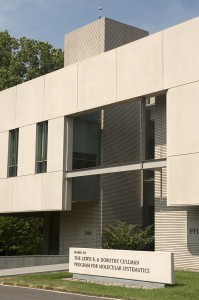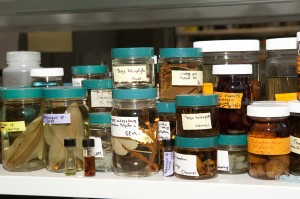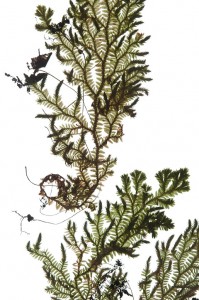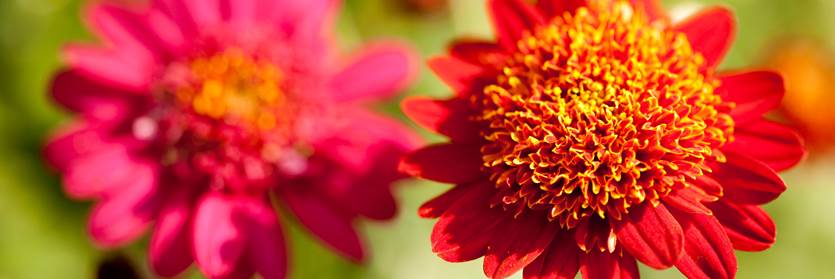Science Open House Weekend
Posted in Programs and Events, Science on August 22 2011, by Ann Rafalko
 Saturday and Sunday, August 27-28, 2011
Saturday and Sunday, August 27-28, 2011
This weekend-long event will offer the public a rare insider’s view of The New York Botanical Garden’s Science campus.
Garden scientists will lead tours of the Pfizer Plant Research Laboratory and William and Lynda Steere Herbarium.
Briefings from the Field, a short lecture series featuring updates from the fieldwork of various Garden scientists, is open to the public Saturday at 2 p.m. in the Arthur and Janet Ross Lecture Hall
Garden scientists are working all over the world on plant-related studies ranging from working to preserve the endangered flora of Puerto Rico, to searching for lichens and mosses at the ends of the earth, to hunting for hidden pathogens in North America’s cranberry bogs, and to empowering junior high school girls through flowers. Come visit these beautiful and fascinating facilities (get a preview of the Pfizer Lab here) and hear the stories of discovery from the Garden’s scientists themselves.
Science Open House Weekend Schedule
All tours will meet at the Ross Gallery. Each tour capacity will be a maximum of 25 people. Tours will be led by Garden scientists.
 Saturday, August 27
Saturday, August 27
11 a.m. Tour of the Pfizer Lab, home of the Lewis B. and Dorothy Cullman Program for Molecular Systematics
11 a.m. Tour of the William and Lynda Steere Herbarium
12 p.m. Tour of the Pfizer Lab, home of the Lewis B. and Dorothy Cullman Program for Molecular Systematics
12 p.m. Tour of the William and Lynda Steere Herbarium
1 p.m. Tour of the Pfizer Lab, home of the Lewis B. and Dorothy Cullman Program for Molecular Systematics
1 p.m. Tour of the William and Lynda Steere Herbarium
2 p.m. Briefings from the Field: A short lecture series by Garden Scientists

In the Arthur and Janet Ross Performance Hall
Dr. Fabian Michelangeli, The Role of DNA Research in New Species Discovery
Dr. Paola Pedraza, Diversity and Conservation of Andean Forests: Searching for Blueberries
Dr. James Miller, Research to Inform Conservation: Assessing Risk of Extinction for the World’s Plant Species
3 p.m. Tour of the Pfizer Lab, home of the Lewis B. and Dorothy Cullman Program for Molecular Systematics
3 p.m. Tour of the William and Lynda Steere Herbarium
Sunday, August 28
1 p.m. Tour of the Pfizer Lab, home of the Lewis B. and Dorothy Cullman Program for Molecular Systematics
3 p.m. Tour of the Pfizer Lab, home of the Lewis B. and Dorothy Cullman Program for Molecular Systematics
Why Science?
The New York Botanical Garden is one of the world’s preeminent freestanding plant research organizations. The Garden conducts basic research in plant biology and studies all species of plants and fungi around the globe. Our scientists use sophisticated techniques such as molecular systematics, genomics research, and digital imaging. Never before has the need been greater to integrate the use of our unparalleled resources–in the field, laboratory, library, and herbarium–to maximize the impact of our work and maintain our position at the forefront of worldwide botanical research.
With its longstanding scientific mission and unmatched facilities, the Garden is uniquely positioned to address increasing environmental challenges. The William and Lynda Steere Herbarium collection, assembled by our scientist explorers over more than a century, is among the four largest in the world and the largest in the Western Hemisphere; the C.V. Starr Virtual Herbarium database adds 45,000 new records each year; the LuEsther T. Mertz Library is the world’s most important botanical and horticultural resource of its kind; our internationally renowned scientific staff work in the state-of-the-art Pfizer Plant Research Laboratory and a pioneering Lewis B. and Dorothy Cullman Program for Molecular Systematics, while running the largest botanical sciences Graduate Studies Program at any botanical garden in the world.
The Garden brings remarkable assets to the scientific enterprise. Its physical and human resources together comprise one of the top science, research, education, and scholarly centers in the world, distinguished in scope, depth, authority, and excellence. The Garden’s greatest distinction, however, lies in the way its many assets are interwoven to form an entity greater than the sum of its parts. From remote field sites to state-of-the-art laboratories, Garden scientists are working in concert to study and preserve the world’s botanical heritage—and to help ensure the future of life on Earth.


Wonderful opportunity for one and all.Thanks for organizing this event!